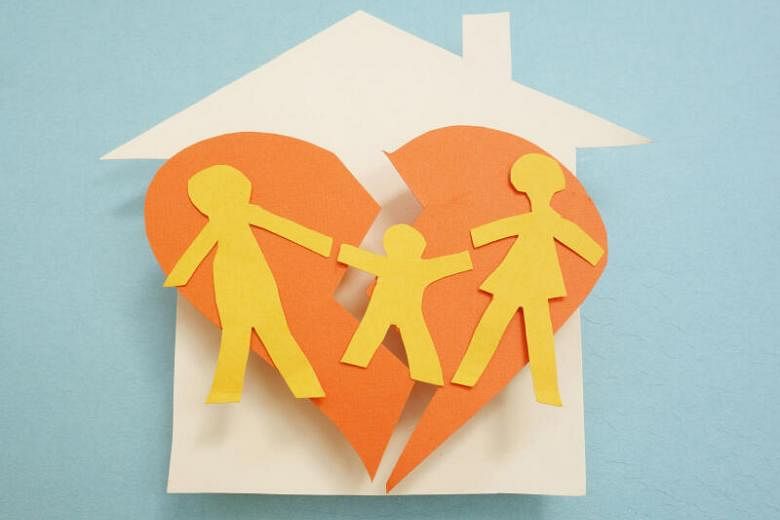Among the many things that the Covid-19 pandemic has wrecked is marriages.
In the wake of the Covid-19 outbreak in China came a surge in divorces as couples emerged from their quarantine. And as the virus spread, similar trends of marital break-ups were reported in Italy, Sweden, Britain and elsewhere around the world.
There could be any number of specific reasons, but the tensions that arise from the enforced confinement of lockdowns and work-from-home disruptions are inevitably hard on fragile marriages. Where once the cracks could be papered over, the pandemic-induced circumstances are providing fertile ground for domestic violence, more frequent and intense rows or, more subtly, the final small act of derision or neglect that tips the balance and ends with a call to a divorce lawyer.
In the midst of the misery of countless private break-ups came the news last month of the end of Bill and Melinda Gates' marriage after nearly 30 years. The announcement made headlines worldwide, but as Irish writer Mary Colum once said to American novelist Ernest Hemingway: "The only difference between the rich and other people is that the rich have more money."
For this immensely wealthy power couple who jointly ran one of the world's biggest philanthropic foundations, strained finances were certainly not the cause. News have since emerged of Mr Gates' alleged philandering that might have driven his wife to end the marriage. The reason they gave for the divorce, however, was that they no longer believe that they "can grow together as a couple" - which may not be far off the mark either.
Social psychology professor Eli Finkel, of Northwestern University, has a thesis about modern marriages.
He sees marriages evolving over time. In an earlier era, marriages were more of a practical arrangement because life then was more precarious and difficult, and a couple needed each other to meet survival needs like securing food and shelter. When communities became more settled and safety was no longer a problem, people began to view marriage as a means to attain emotional fulfilment - with a particular emphasis on love.
Now, while people may continue to seek love in a marriage, they also want more. In what Professor Finkel calls an "all or none marriage", they want it to be a "pursuit of personal growth and... self-actualisation".
Maslow's pyramid
The idea of self-actualisation (and the popularisation of it) came from humanistic psychologist Abraham Maslow, best known for his eponymous pyramid of needs - which has since become a staple of almost all psychology textbooks and books on business management.
Maslow viewed an individual's life as a continuous striving to satisfy a set of needs, which are arranged in a universal hierarchy. He first described this in his seminal paper called A Theory Of Human Motivation, which was published in 1943. It was much later that his complex ideas and insights were simplified and reduced to the now iconic pyramid - something which was not thought up by Maslow but by a management consultant whose name has been forgotten in the annals of psychology. Maslow was reputed to have said that he "hated that damned pyramid" but he certainly didn't disown it either.
There are five tiers of needs in the pyramid. At the base are the basic physiological needs like food, water, sleep, shelter and sex - basics for survival. At the second level are safety needs: protection from harm and the assurance that our basic needs would be met in the future. At the third level are our needs for love, friendship and belonging, and after that comes our needs for self-respect and esteem from others. At the pinnacle is what Maslow called "self-actualisation", which he defined as "the desire to become more and more what one is, to become everything that one is capable of becoming".
The basic idea is that our needs must be met from the lowest level up: Only those who are well fed and protected can strive for other things. Those whose physiological needs have been met would have their mind and energy freed to focus on those higher needs of love and social affirmation, and go on to work their way towards self-actualisation.
But self-actualisation - like any lofty peak - is hard to reach by Maslow's reckoning.
After interviewing scores of people and reviewing the lives of historical figures, Maslow concluded that self-actualisation is something that only a small proportion of humanity can attain, and that these self-actualisers possess a number of distinctive characteristics, including accurate perception of reality, humility, creativity and frequent mystical or peak experiences.
He estimated that a mere 2 per cent of humanity can reach that rarefied height. In 1970, he came up with a list of self-actualisers. There were only 18 names on the list, which included Abraham Lincoln, Albert Einstein, Mahatma Gandhi, Albert Schweitzer, Mother Teresa and himself.
Little wonder, then, that if couples do want self-actualisation as part of the deal in their marriage as Prof Finkel has suggested, and where they want the other to be the cheerleader, nursemaid and abettor of their respective quests for self-actualisation, which will transform them into better versions of themselves while being animated with fulfilment, stimulation, devotion and status, they are in for disappointment. In this "all or nothing" proposition, with its thick layering of excessive demands, there would be disillusionment and discontent.
Prof Finkel's research was based on American marriages, and America has possibly the world's most individualist society - one which prioritises autonomy, self-expression and the pursuit of personal goals. It is arguable that in collectivistic societies, there is less of this emphasis on personal achievements and self-actualisation within a marriage. And say what we want, marriage is still largely an unequal union where the wife would still shoulder the greater share of housework and caregiving, and is systemically disadvantaged when competing for jobs and promotion.
24/7 Pressure cooker
Scaling to the top of Maslow's pyramid is hard enough. But this global pandemic has also been a great leveller which has pummelled most people, across cultures, married or otherwise, to precarity and the bottom layers of the pyramid, where the preoccupations are with meeting the physiological needs of food and physical safety, and with the fear of losing loved ones and feeling the deprivation of connections with others.
How low down that pyramid people would be varies. Most of us here are assured of food, shelter and security, but there is a cost. Social distancing and isolating ourselves in our homes have created stresses elsewhere in our lives, including marriages.
I have patients who have started bringing up problems of increased marital tension as a result of being cooped up at home with their spouses. Life's now "like a 24/7 pressure cooker", says one rather plaintively.
But those patients of mine aren't seeking self-actualisation; they just want to get on with life, to attain the ordinary things out of marriage: someone to care for and be cared for in return, to have children and bring them up well. Previously, there were the usual minor irritations and squabbles, but the confinement, the upending of routines and the increased domestic pressure have amplified these frictions and grievances, and made them more consequential and damaging.
Prof Finkel has suggested that couples should have more "diversified social portfolios", that is, to have a number of people that they can go to to meet their various emotional needs. So, if one's spouse is particularly effective at cheering one up but not at calming anger, an individual should seek someone - a friend or another family member who is adept at soothing anger. But with the lockdowns and restriction of movement, these shuts-in have largely shut out the access to other people.
And what can couples do at this trying time?
Something that is at once seemingly simple and seemingly complicated that couples could do is to reflect on whether their expectations of each other are what their marriage can realistically provide - and adjust their expectations accordingly.
And it might have to be an ongoing effort, during which they should not fall prey to those "conflict behaviours" that usually presage a divorce - disdain, criticism, stonewalling and defensiveness - and instead practise patience and empathy, to see the humour of things, to feel gratitude, and to give and ask for forgiveness.
Professor Chong Siow Ann is a senior consultant psychiatrist at the Institute of Mental Health.


